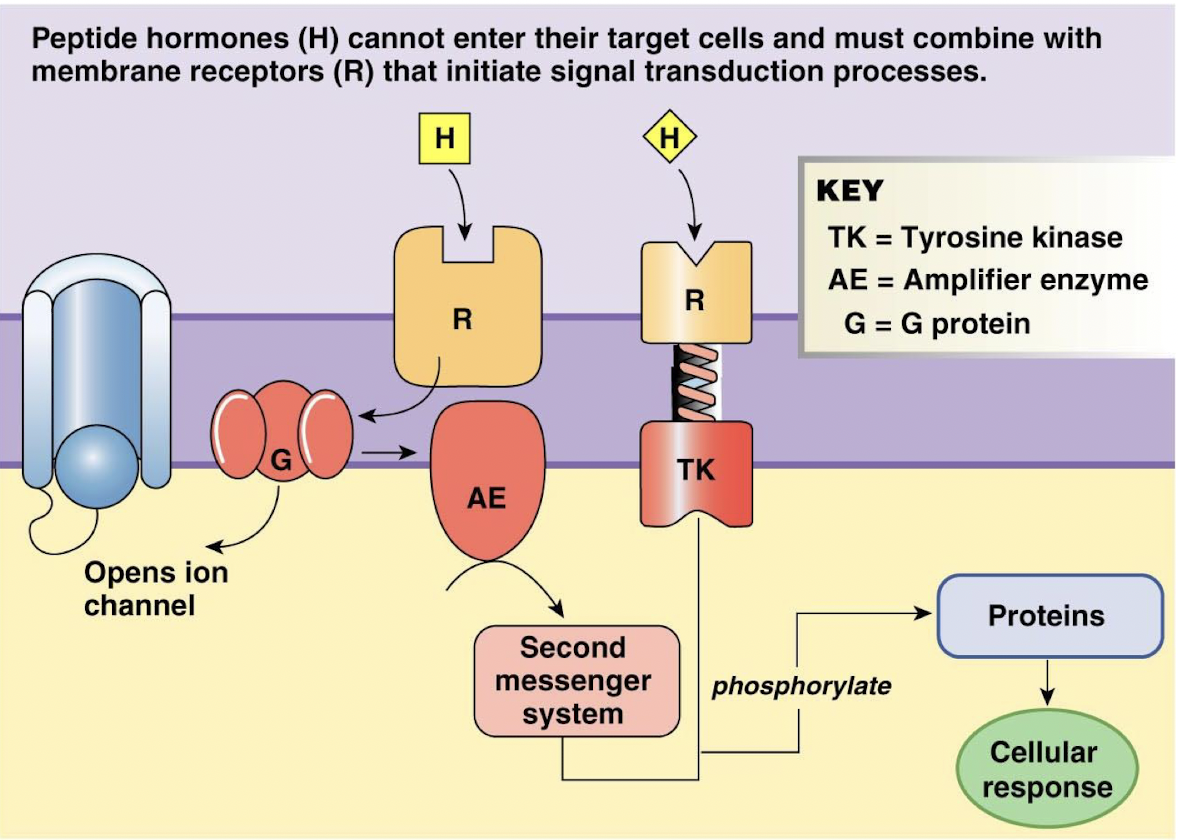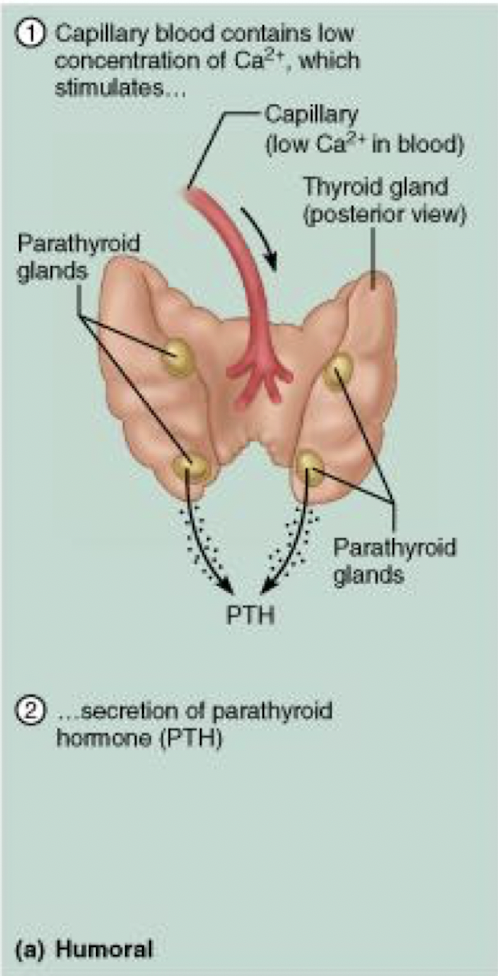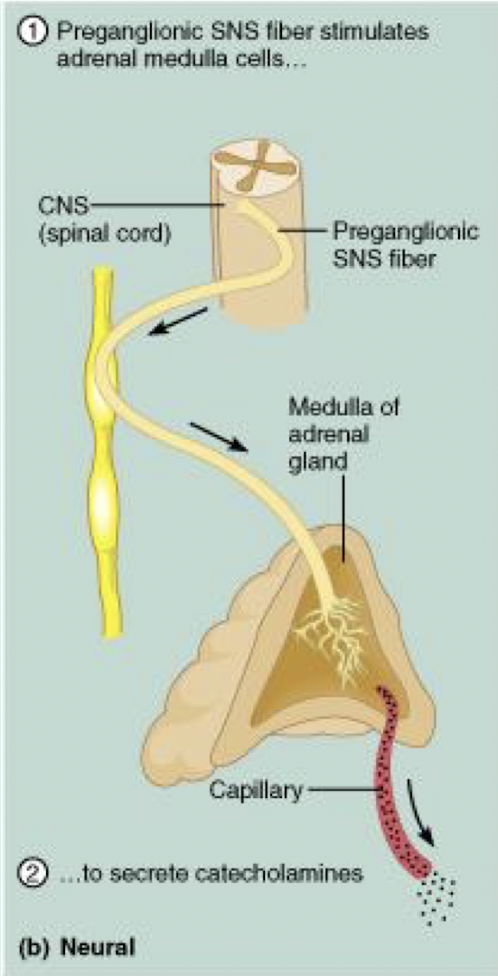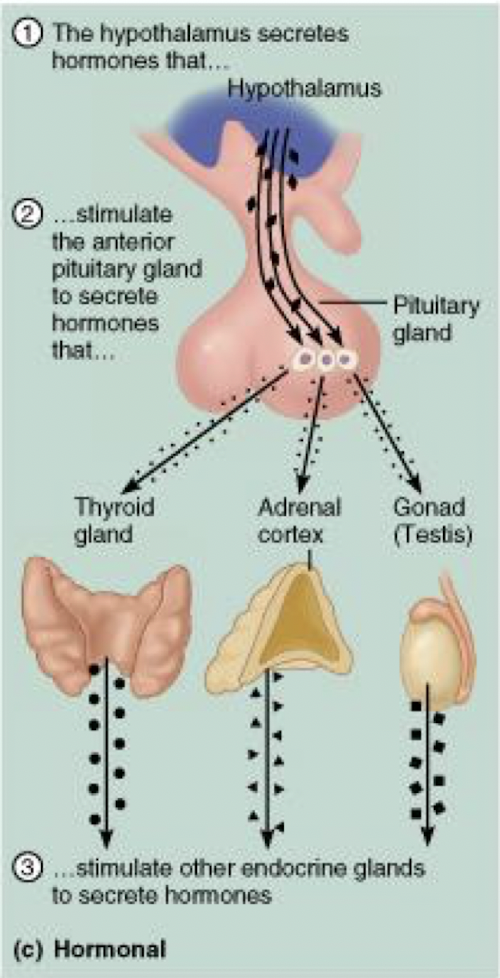Human Physio Homeostasis and Endocrine System
0.0(0)
Card Sorting
1/29
Earn XP
Description and Tags
Study Analytics
Name | Mastery | Learn | Test | Matching | Spaced |
|---|
No study sessions yet.
30 Terms
1
New cards
stimulus -> sensor/receptor -> afferent pathway -> integrating pathway -> efferent pathway -> target/effector -> response
Components of control pathway
2
New cards
Negative feedback
The response counteracts with the stimulus, shutting off the response loop
3
New cards
Negative feedback regulation
Increase or decrease in the variable being regulated brings a response that changes variable in the opposite direction to that of the original change.
4
New cards
Positive feedback
The response reinforces the stimulus, sending the variable further from the set point
5
New cards
Positive feedback regulation
The response of system goes in the same direction as changes that sets in motion
6
New cards
Peptide/protein hormones
_______ composed of linked amino acids
_______ are lipophobic, so only able to enter target cells through receptors
_______ are lipophobic, so only able to enter target cells through receptors
7
New cards
peptide/protein hormones' mechanism of action
membrane receptors, signal transduction system

8
New cards
Steroid hormones
All ________ are derived from cholesterol
_______ controls gene expression
_______ synthesised in smooth ER and on demand and released immediately
_______ controls gene expression
_______ synthesised in smooth ER and on demand and released immediately
9
New cards
Lipophilic
Steroid hormones are _______ as they are derived from cholesterol
10
New cards
diffuse
Lipid-soluble hormones _____ across plasma membrane
11
New cards
receptor-hormone complex
Hormone binds with receptor in cytoplasm, forming ______
12
New cards
nucleus, gene transcription
Receptor-hormone complex enters the ____, triggering _____
13
New cards
proteins
Transcribed mRNA is translated into _______ that alter cell activity
14
New cards
Amino-acid derived hormones
________ are modifications of single amino acids and some are lipophilic
________ are created from either tyrosine or tryptophan
________ are created from either tyrosine or tryptophan
15
New cards
Thyroid hormones
______ affects gene transcription
16
New cards
Catecholamine or Peptide/protein hormones
______ binds to membrane receptors
17
New cards
Hormones
________ enter bloodstream and distribute to target cells.
18
New cards
GRRB (growth, regulation, reproduction & behaviour)
Functions of endocrine system
19
New cards
anterior pituitary
The _________ either stimulate or inhibit the release of hormones.
20
New cards
anterior pituitary
In response to releasing the hormones, the ________ secretes hormones into the secondary capillary plexus.
21
New cards
Hypothalamus
_____ is the master regulatory organ
_____ integrates nervous and endocrine system
_____ integrates nervous and endocrine system
22
New cards
control secretion
Hypothalamus secretes regulatory hormones to ____________ from anterior pituitary
23
New cards
endocrine
Hypothalamus acts as ____ gland
24
New cards
neural
Hypothalamus has autonomic centers for _____ control of adrenal medulla
25
New cards
Hypothalamic neurons
________ synthesise hormones.
26
New cards

Humoral
in response to levels of ions or nutrients in the blood
27
New cards

Neural
stimulation by nerve fibres (very fast)
28
New cards

Hormonal
stimulation received from other hormones
29
New cards
Hyposecretion
too little hormone is secreted
30
New cards
Hypersecretion
too much hormone is secreted